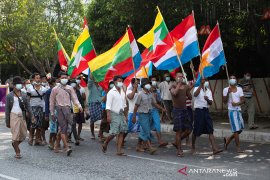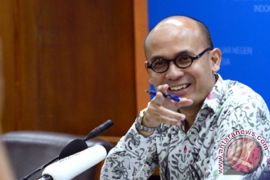All of the estimated 20 people held ahead of the 50th anniversary of a brutal suppression of a student movement were freed late Saturday, after fears swirled that authorities had taken a backward step from tentative reforms.
"The arrested student leaders were all released an hour ago," a government official said.
The move was confirmed by prominent activists in Yangon.
"The four arrested in Yangon were released and we had information that the others around the country were also released," said Zaw Min, a veteran of major student protests in 1988.
The nationwide sweep had raised fears over the fragility of the reforms which are being driven by the quasi-civilian government of President Thein Sein.
Under his watch Myanmar has freed some political prisoners, held by-elections, liberalised sections of the nation`s battered economy and taken steps to opening up the media after decades of authoritarian rule.
Neither the detentions, nor the presence of plain clothes police, deterred around 300 people from gathering in Yangon to remember the bloody 1962 blitz on students protesting against military rule in Yangon University.
Amid fury over the detentions, student leader Kywa Ko Ko accused the government of "trying to go backwards" after a slew of reforms which this week led to Aung San Suu Kyi`s opposition party taking seats in parliament.
One government official had earlier conceded that authorities were "worried" by the planned student commemoration, more so after deadly violence in western Myanmar.
Mie Mie, a veteran of the 88 Generation Students Group, which played a key part in a 1988 uprising against the former junta, branded the move "an obstacle on the way to democracy".
But analysts expressed caution over a rush to interpret too much from the detentions, and said the communal violence in Rakhine state had left the country -- and its leaders -- on edge.
"With the country opening up, people are trying to test the limits of freedom. I think that is what has happened," said Aung Naing Oo of the Bangkok-based Vahu Development Institute.
"It (the detentions) is just a precaution," he said, adding that the government was unlikely to risk damaging fragile international relationships with "mass arrests".
Saturday`s anniversary remembers the 1962 crackdown on students protesting against military rule in Yangon University.
The day after the deadly army suppression, the student union building was destroyed with dynamite by the junta while some injured students were still hiding inside.
Ceremonies to remember the event were low key under the junta for fear of provoking the army.
Opposition leader Aung San Suu Kyi, who is due to attend parliament as an elected lawmaker on Monday, has urged caution over Myanmar`s reforms and called on the government to release those still in custody from the junta era.
On Tuesday Myanmar included about 20 political prisoners in a jail amnesty. (*)
Editor: Kunto Wibisono
Copyright © ANTARA 2012










